This Sorcerer guide is a power that beats within your heart.
Take these words and wield them as is your birthright and become the greatest Sorcerer the land has seen. Remember that the power was within you this whole time.
We also offer a full list of other great character optimisation guides for D&D.
Contents:
- Introduction
- Class Features
- Stats
- Races
- Sorcerous Origins
- Clockwork Soul (UA)
- Divine Soul
- Draconic Bloodline
- Psionic Soul (UA)
- Shadow Magic
- Storm Sorcery
- Wild Magic
- Spells
- Font of Magic
- Metamagic
- Skills
- Backgrounds
- Feats
- Multiclassing
Introduction:
Sorcerers are one of the most intriguing casting classes in Dungeons and Dragons. With their innate ability to wield magic, they are powerful, intimidating, and can cause a lot of destruction in battle. Not to mention their abilities to move around social circles and manipulate situations to their will.
Sorcerers are a challenge. They lack the versatility of a Wizard, but share many of the same capabilities, and almost all of the same spells. Where the Wizard is powerful because they own a tool for every problem, the Sorcerer is powerful because they own a few good tools and can use them to fix any problem. Sorcerers also make one of the best Faces in the game due to their skill list and dependence on Charisma. The Sorcerer’s spell list allows them to serve as a Blaster, Controller, Striker, and Utility Caster.
Sorcerers can use elemental abilities to attack and hit hard, without even touching their opponent. Although sending them directly onto the battlefield is a death sentence, they are a mighty asset to any party.
From this point forward, the common colour coding is being used:
Sky Blue = Top of the line choice. Sorcerer optimization starts here.
Blue = Very strong choice for Sorcerers, but not amazing.
Black = Solid choice. There are better options, but this is more than serviceable
Purple = Not top tier. It may have niche use, but better options exist
Red = Mechanically weak. If you feel it fits your concept, go for it, but you will likely be less effective
Keep in mind that this is an optimisation guide and all of these categorizations are simply suggestions. These suggestions are based around playing to sorcerers’ abilities and enhancing powers that are unique to the class.
If something that I don’t rank high would play into a storyline that you want to use, feel free to take what excited you. You know your game better than I do.
Sorcerer Class Features
- Hit Dice: Your hit die is 1d6, which isn’t great. You’re not a wizard, but you’re still pretty squishy, so it’s for the best that you stay out of combat for a while in the beginning.
- Weapon Proficiency: Daggers, darts, slings, quarterstaffs, light crossbows. Basic stuff, can help in a pinch but here’s a tip: use your super cool magical powers!
- Saving Throws: Constitution saves are probably the most common saves. Charisma saves won’t come up as often.
- Skills: You’ve got a few good options to choose from. More on that in the skills section, but you should probably grab at least one charisma based skill.
- Spellcasting: This is where all your power is going to come from. You were born with magic in your blood, so use it to your advantage. You’ve pretty much got all of the spell slots you need since you’re not going to be doing any melee fighting. You can choose from a huge list of spells, but you should choose them with your sorcerous origin in mind to maximize your power.
- Ability Score Improvements: You can increase ability scores (one by 2 points or two by 1 point) at levels 4, 8, 12, 16, and 19. You can’t go above 20 in any ability score. Start by maxing charisma (and maybe some con) and then go for feats.
- Sorcerous Restoration: You can restore 4 expended sorcery points (see font of magic section) per short rest. Sorcery points are your friend, you always want to have them.
Stats
- Str: Strength is all but a dump stat for sorcerers. Although they harbor amazing powers, they’re not going to do well in a fight. It’s better to keep your sorcerer on the sidelines and casting, where they can do the most damage.
- Dex: Dexterity will come in handy for your sorcerer during combat, because they are more likely to be flighting than fighting. It will also help keep them safe, as it influences your character’s armor class. Hiding and passive perception will also do loads of good to keep your sorcerer alive and conscious in the early game.
- Con: Constitution is important for classes across the board. Since sorcerers are notoriously squishy, this will be an important stat to note since you’re in need of a high con modifier.
- Int: Intelligence can be helpful for sorcerers with certain class skills, however it definitely won’t be your top priority. Or anything close to that.
- Wis: Wisdom will likely come in handy at some point during your game. Anyone who has played as a sorcerer knows that staying alive can be a bit of a struggle, and a high wis modifier definitely increases your odds of survival.
- Cha: Charisma is of utmost importance, as it is your casting stat. This should probably be your highest stat.
Best Sorcerer Races
Anything with +Cha is solid Dex or Con should be the second stat, if you can. Defensive bonuses are also useful early, though some options may be less effective later.
- Aarakocra: [+2 DEX, +1 WIS] Surprisingly solid choice. A dex boost is always helpful for a sorcerer, though wis doesn’t do much. Aarakocra also have proficiency with unarmed strikes, which could come in handy if it came to that. The flight might also come in handy for casting.
- Aasimar: [+2 CHA] You always want charisma boosts for a sorcerer. Celestial resistance also comes in handy for self defense.
- Protector: [+1 WIS] Extra wis isn’t gonna help much, but the other race features are solid if you want to choose a protector for your story.
- Scourge: [+1 CON] Boosts to both cha and con are ideal, making a scourge aasimar one of the best choices.
- Fallen: [+1 STR] Don’t choose this option for the strength boost. If you’re going to go with a fallen aasimar, do it for the limitless character complexities you can play with.
- Bugbear: [+2 STR, +1 DEX] Mechanics wise, not worth the effort. Gameplay wise, it’d be interesting to see how you’d manage to explain a bugbear sorcerer.
- Dragonborn: [+2 STR, +1 CHA] There’s not much of a point in making a dragonborn sorcerer when there’s the Draconic Bloodline origin that you can choose, and get the perks of a different race at the same time.
- Dwarf: [+2 CON] The con boost is a solid reason to choose a dwarf, but there are better options that come with con boosts.
- Mountain Dwarf: [+2 STR] Everything a mountain dwarf has to offer is kind of a waste on you.
- Hill Dwarf: [+1 WIS] Again, not really worth it mechanics wise.
- Duergar: [+1 STR] None of the dwarfs are an efficient combination for a sorcerer.
- Elf: [+2 DEX] Solid pick, but there are better options out there for you.
- Wood Elf: [+1 WIS] Mask of the wild could come in handy if you’re trying to cast without being seen, but there are easier ways to achieve this.
- Drow: [+1 CHA] Other than the charisma boost (which you could easily get elsewhere), there’s not much here for you.
- High Elf: [+1 INT] An extra cantrip is always nice, but you don’t need to be a high elf to get one.
- Eladrin: [+1 CHA] You could have a lot of fun with an eladrin sorcerer, it’s up to you to get creative!
- Sea Elf: [+1 CON] Unless you know your campaign takes place on the coast or there’s a heavy water element, it’s better to pick something else.
- Shadar-Kai: [+1 CON] Better to go with eladrin unless you desperately need the con modifier for whatever reason.
- Firbolg: [+2 WIS, +1 STR] Firbolg have some cool abilities. Unfortunately, the stat modifiers are lost on you and you can find similar race features elsewhere.
- Genasi: [+2 CON] Can’t go wrong with a con modifier. It all depends on the type of genasi you want to play.
- Air Genasi: [+1 DEX] The dex mod helps, but you can find similar abilities and more elsewhere.
- Earth Genasi: [+1 STR] Strength is wasted on you, but the Pass Without Trace spell would be really useful to you if needed.
- Fire Genasi: [+1 INT] Okay choice, but you’d be better off choosing a tiefling.
- Water Genasi: [+ 1 WIS] You don’t need to be a water genasi to get most of these abilities.
- Gith: [+1 INT] Look elsewhere. There’s nothing for you here mechanics wise.
- Githyanki: [+1 STR] As a sorcerer, you don’t want to be engaging in melee combat unless you have a death wish.
- Githzerai: [+1 WIS] If it works for your story, great. If not, you have way better options.
- Gnome: [+2 INT] The advantages on saves against some magic help, but there are more active ways to keep your character safe and on their feet.
- Forest Gnome: [+1 DEX] Not recommended unless it really works with your story.
- Rock Gnome: [+1 CON] There are a lot of fun things that come with being a rock gnome, but you might want to save them for a different character.
- Deep Gnome: [+1 DEX] Not much else here for you. Look elsewhere for a dex boost.
- Goblin: [+2 DEX, +1 CON] Good stat modifiers, and some nice perks for you.
- Goliath: [+2 STR, +1 CON] If you’re looking at a sorcerer optimization guide, you’re probably not looking to make a tank. Next.
- Half-Elf: [+2 CHA, +1 ???, +1 ???] Half-elves are a reliably good race pick across the board. Especially for you, since that charisma mod helps and you have many ways to customize them.
- Half-Orc: [+2 STR, +1 CON] Strong choice, but not for sorcerers.
- Halfling: [+2 DEX] Can’t complain about anything the halfling has to offer. They’re adaptable to almost any class.
- Stout Halfling: [+1 CON] Nothing to complain about here either, but nothing too special.
- Lightfoot Halfling: [+1 CHA] If you’re going to choose a halfling, stats wise, you want a lightfoot.
- Ghostwise Halfling: [+1 WIS] Solid choice, surely the silent speech will come in handy. There are still better options out there, though.
- Human: [+1 ALL] By all means, be a human in a fantasy RPG. There are a lot more fun and effective ways to get creative out there.
- Kenku: [+2 DEX, +1 WIS] Another fun race, but playing a kenku sorcerer wouldn’t make you as strong as you could be.
- Kobold: [+2 DEX, -2 STR] If you’re looking to be an effortlessly cool sorcerer, this is not the race to pick. You also don’t need to lose any more strength, you were going to lose whatever fistfight you got into from the getgo.
- Lizardfolk: [+2 CON, +1 WIS] Overall, a lizardfolk sorcerer is a pretty powerful choice. However, there is a large possibility that many of their race abilities may not be helpful in an everyday combat scenario.
- Orc: [+2 STR, +1 CON, -2 INT] An orc sorcerer is just not worth your time in terms of optimization.
- Tabaxi: [+2 DEX, +1 CHA] Solid choice, many of the tabaxi features will come in handy.
- Tiefling: [+2 CHA] After half-elf, the tiefling is the best choice for a sorcerer in the PHB.
- Asmodeus: [+1 INT] Still a solid choice, but not the best bloodline for a sorcerer.
- Baalzebul: [+1 INT] Same deal as Bloodline of Asmodeus.
- Dispater: [+1 DEX] Many of the bonus spells from each bloodline won’t matter much, but the boost to dex makes Dispater a step above the previous ones.
- Fierna: [+1 WIS] A boost to wis is slightly better than a boost to int, but not by much.
- Glasya: [+1 DEX] Tieflings are known for being chaotic, and you can easily lean into that with this bloodline.
- Levistus: [+1 CON] Choosing the Levistus bloodline or not basically comes down to whether you want a few cold spells.
- Mammon: [+1 INT] Again, down to personal preference. There are better bloodlines to choose, but if this one goes with your backstory, go for it.
- Mephistopheles: [+1 INT] This is an interesting case storywise, because this bloodline focuses on arcana. Still probably better choices of bloodlines.
- Zariel: [+1 STR] Zariel’s bloodline is the least suited to sorcery.
- Tortle: [+2 STR, +1 WIS] The strength mod isn’t going to help you, but the natural AC without having to worry about armor is nice. Still, better options exist.
- Triton: [+1 STR, +1 CON, +1 CHA] Again, if your game takes place near a body of water, being a triton could be helpful. If not, choose other optimizations.
- Yuan-Ti Pureblood: [+2 CHA, +1 INT] Yuan-Ti Purebloods have some nice perks, making them a solid choice.
Eberron Races:
- Changeling: [+2 CHA, +1 ???] The stat boosts are solid, and changelings come with some fun features.
- Shifters: [+1 DEX] If you’re looking to be able to change your appearance, changeling is definitely a better option.
- Beasthide Shifter: [+2 CON] The con boost and temporary hp can come in handy, but there are better ways to optimize.
- Longtooth Shifter: [+2 STR] You won’t be needing any of these subrace features.
- Swiftstride Shifter: [+1 DEX, +1 CHA] If you’re going to go with a shifter, go with a swiftstride. The stat boosts will help you the most, plus additional movement is always helpful to a sorcerer.
- Wildhunt Shifter: [+2 WIS] This could come in very handy in extremely specific situations. Most likely ones that you won’t be in, or know you’re going to be in until it’s too late.
- Warforged: [+2 CON, +1 ???] Warforged is a great choice for a sorcerer. Plus, the backstory options are endless.
- Envoy: [+1 ???, +1 ???] There is so much creative freedom here, take advantage of it.
- Juggernaut: [+2 STR] Least helpful of the warforged options, but still a solid choice.
- Skirmisher: [+2 DEX] Skirmisher is a great option, it’s just hard to compete with the envoy.
Keep in mind that these suggestions are more helpful in early game, as racial bonuses won’t matter as much when you level up.
Sorcerous Origins: Sorcerer Subclasses
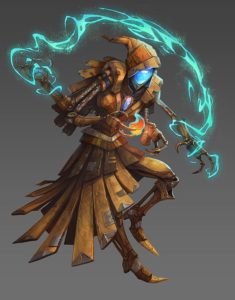
Clockwork Soul (UA):
Control time and space with the features present in the Clockwork Soul origin. You can protect yourself and others, take away advantages and disadvantages, and fix what has been broken or tampered with.
-
- Clockwork Magic: A bunch of extra spells you can get automatically with every other level, some from the sorcerer spell list and some from elsewhere.
- Restore Balance (1st Level): Allows you to take away advantage or disadvantage on rolls by another creature.
- Bulwark of Law (6th Level): Additional protections, with a chaotic twist. If you’ve got sorcery points to spare, this’ll help keep your or an ally’s hp up.
- Trance of Order (14th Level): Hypnotize yourself into basically becoming a tank. Take away an enemy’s advantages, and make it impossible for yourself to get lower than a 10 on a d20 roll.
- Clockwork Cavalcade (14th Level): Within a 30 foot cube, undo some spell effects, restore up to 100 hp, and fix any broken item.
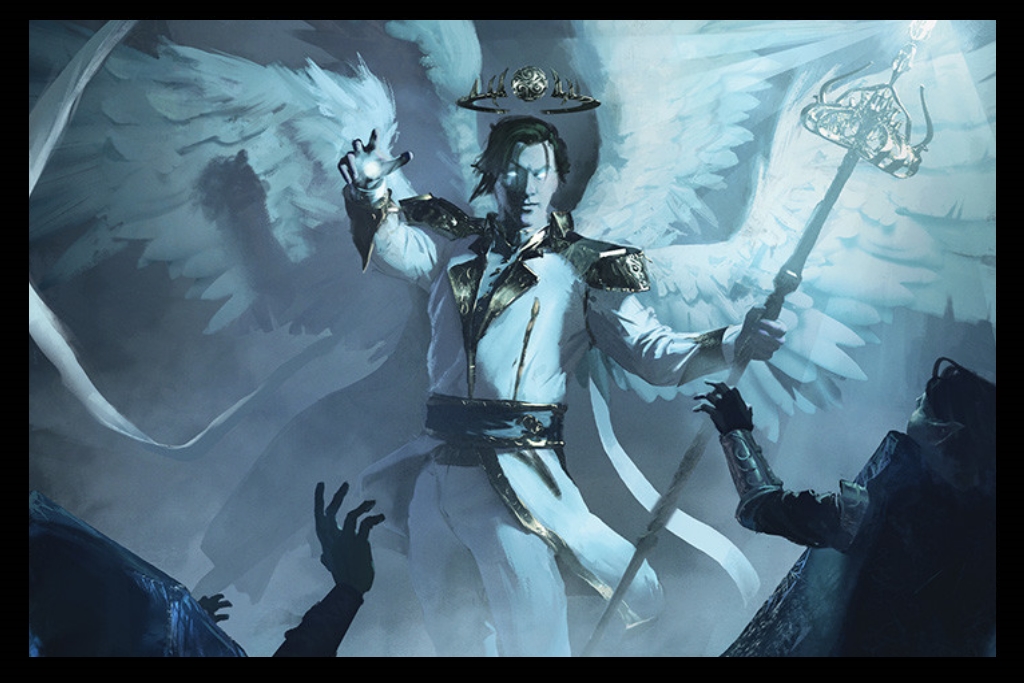
Divine Soul:
Your soul is blessed. You may challenge organized religious groups or be adored by them. Either way, divine magic is on your side.
-
- Divine Magic: An extra spell is never a bad thing. You can also dip into the cleric spell list, which provides you with a bit of extra option.
- Favored by the Gods (1st Level): Adding 2d4 onto a low roll could come in very handy every once per long or short rest.
- Empowered Healing (6th Level): Unless you or an ally rolls absolutely terribly on a healing spell, you probably won’t want to spend a sorcery point to use this.
- Angelic Form (14th Level): Grow wings! You can now fly and/or give yourself a bat/eagle/dragonfly aesthetic.
- Unearthly Recovery (18th Level): Recover half of your max hp as a bonus action.
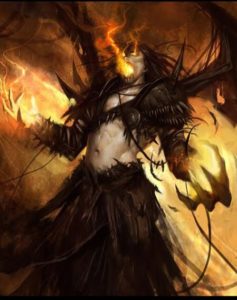
Draconic Bloodline:
Your magic comes from a draconic ancestor long ago in your family line. You still bear draconic resemblance, as well as an affinity for one type of elemental damage. You have some of the perks of being a dragonborn without actually being a dragonborn.
-
- Dragon Ancestor (1st Level): Basically the only feature that affects you from Draconic Ancestor until level six is that you know Draconic. You also get to pick the color of your ancestor’s scales, which comes into play later.
- Draconic Resilience (1st Level): Draconic resilience gives you a higher AC and a higher max HP, which is extremely useful for you at the first level.
- Elemental Affinity (6th Level): This is where your dragon ancestor comes in to help you. You get extra modifiers to attacks with your chosen type of damage, and you can spend sorcery points to get resistance to it.
- Dragon Wings (14th Level): Another of many ways you can gain the power of flight as a sorcerer. Just make sure you don’t care about the shirt you’re wearing.
- Draconic Presence (18th Level): Use five sorcery points to trigger either an aura of awe or fear. Neither is worth five sorcery points.
Psionic Soul (UA):
Some way or another, you come to have psionic power. Now that you do, a light shines within you that is the source of your power. You have more control over the wellbeing of yourself and those around you.
-
- Psionic Origin: Basically serves as your backstory. Fun storytelling element, but doesn’t really do anything for you.
- Psionic Talent (1st Level): Tons of different mildly useful features. They are based off of your psionic talent die, which automatically starts off as a d6 and grows as you level up or grows as you crit fail or shrinks as you crit succeed. (Add more later)
- Psi Replenishment (1st Level): Plays off your psionic talent. This feature can change the size of your psionic talent die.
- Psychic Strike (6th Level): Deal extra damage with spell attacks once per turn. Pretty basic, but it can hurt.
- Mind Over Body (14th Level): Your physical form can no longer hinder you. You can fly (again, it’s not that hard to find a way to fly), see any invisible creature, swim and breathe under water, or bend your body into shapes that would normally kill you.
- Psychic Aura (18th Level): Within a 30 foot radius, you can deal damage to any creature on their turn and half their movement speed.
Shadow Magic:
You have a dark and edgy type of magic within you. You are naturally able to defy death, blend in with shadows, and dip into a darker form of being.
-
- Shadow Sorcerer Quirks: More random traits your character has, none are useful mechanically.
- Eyes of the Dark (1st Level): This basically starts off as really good darkvision. At the 3rd level, you gain the darkness spell and can cast it with sorcery points as you choose.
- Strength of the Grave (1st Level): Your saving grace in battle, if you happen to drop below zero HP.
- Hound of Ill Omen (6th Level): Get an omnispective, hellish canine companion for up to five minutes. It may not be the strongest or more efficient feature, but it makes you look badass.
- Shadow Walk (14th Level): Be edgy and sneaky by using this ability to walk exclusively in shadows.
- Umbral Form (18th Level): A little underwhelming powerwise for what it costs, but again, probably looks epic. Transform into a shadowy figure that is resistant to most damage for five sorcery points.
Storm Sourcery:
Your power comes from the weather patterns of the world around you. You can eventually build up to controlling the weather, and become a powerful wielder of thunder and lighting.
-
- Wind Speaker: You know Primordial and can understand, and be understood by speakers of, a few other languages.
- Tempestuous Magic (1st Level): Randomly start flying! You can’t fly that far, but it’s still cool and might come in handy.
- Heart of the Storm (6th Level): Combined with taking spells that deal lightning and/or thunder damage, this feature is a pretty good deal. Plus you get resistance on the aforementioned types of damage.
- Storm Guide (6th Level): This doesn’t do a lot, but take advantage and control the weather just because you can.
- Storm’s Fury (14th Level): If something hits you, hit it back with lightning.
- Wind Soul (18th Level): Complete immunity to lighting and thunder damage, plus the ability to fly yourself and with others.
Wild Magic:
Your magic stems from chaos itself. At earlier levels, it will be unpredictable. However, once you get a grasp on it, you can harness it and inflict chaos on the world around you.
-
- Wild Magic Surge (1st Level): Crit fails can now either be really helpful or more detrimental than before. If you roll a nat one casting a first level spell, one of fifty things will happen. See for yourself if you choose the wild magic origin.
- Tides of Chaos (1st Level): If your DM is more chaotic leaning, they’ll exploit this feature for their own amusement. If you use tides of chaos, they can make you roll on the wild magic surge table after you cast a spell, if they so choose.
- Bend Luck (6th Level): You can give an extra 1d4 advantage or disadvantage on almost any roll for two sorcery points. Doesn’t really seem worth it, but if you’re really desperate…
- Controlled Chaos (14th Level): Make your wild magic surge rolls slightly less chaotic by giving yourself a choice of two effects (that you rolled for).
- Spell Bombardment (18th Level): Extra damage. That’s kind of it. A little underwhelming, considering it’s not even that much extra damage.
Spells
As a sorcerer, you have many spells to choose from. Many, many spells. Some of the most powerful ones are highlighted below, as well as some that may not benefit your game as much. However, the usefulness of these spells and their strength depends on a lot of factors that cannot be accounted for in a simple guide, no matter how in depth you get.
The power of the spells you choose will depend on what race or subclass you combine with it, as well as proficiency and strengths and weaknesses of your enemy. They can also depend on the availability of items needed to cast them in the world you’re playing in, as well as the play-style of your DM. Even the strength and weaknesses of your fellow party members, and which spells they have taken (and what type of casters some of them are).
There is no shortage of things to consider when choosing spells, we just suggest some of the most powerful ones. Since you have a relatively low hp, it would be smart for you to choose some strong attack spells, as well as a couple defensive ones. If you’re the face of the party, deception and charisma based spells would also be helpful. I could go on, but you should probably just get into looking at the spells yourself.
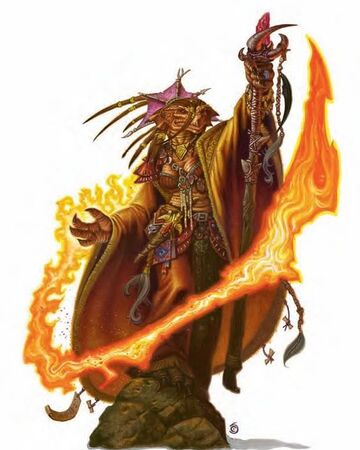
Cantrips
- Acid Splash: Decent attack, comes in handy.
- Blade Ward: Helpful early game, as one of your main goals should be staying alive during combat.
- Booming Blade: Requires a melee attack, which you won’t be making for a while if you value your life.
- Chill Touch: Solid cantrip that you don’t see amongst many races. Deals a lot of damage with a d8.
- Control Flames: This is more of an entertainment cantrip. Feel free to take it, it just might not do you much good on the battlefield.
- Create Bonfire: Solid attack, has some flair to it. Create bonfire is just available to plenty of classes, so it may not be so unique.
- Dancing Lights: Dancing lights could be helpful if you or a party member doesn’t have darkvision. However, the light it creates is much less effective than simply carrying a torch.
- Fire Bolt: Decent attack, deals 1d10 damage if it hits. Good starter cantrip.
- Friends: You have high enough charisma so that you don’t need the advantage this cantrip provides. Plus, more people are going to want to be your friend with better attacks.
- Frostbite: Decent choice, comes in handy if something is directly attacking you. Chill touch is still better.
- Green Flame Blade: You attack with enough style using ranged spells, you don’t need this cantrip to look cool.
- Gust: If your sorcerer values their personal space, great. If not, other cantrips are much better attacks.
- Infestation: If you’re chaotic, this one’s for you. However, there are better spells and cantrips that you can control a lot easier.
- Light: Odds are, you won’t find yourself needing this while you happen to have access to phosphorescent moss or a firefly.
- Lightning Lure: Deals decent damage, but you probably don’t want anything that you’re attacking to be all that close to you.
- Mage Hand: This comes in handy, considering it isn’t wise for you to run into battle for something you could do from afar.
- Mending: Mending always comes in handy, but it is available to most casting classes so you probably don’t need to be the one that takes it.
- Message: Helpful cantrip, but probably not at the top of your priority list.
- Mind Sliver (UA): Fun, but you can easily choose a better attack.
- Minor Illusion: Another fun one if your alignment leans toward chaotic.
- Mold Earth: This probably won’t help you as much as some of these other ones will.
- Poison Spray: This hits hard, but consider if it is worth the risk of angering whatever you’re attacking.
- Prestidigitation: Prestidigitation has a special place in the hearts of all somewhat experienced D&D players. You can decide the fun of this cantrip is worth it to you.
- Ray of Frost: Solid attack, plus attackers have trouble pursuing you.
- Shape Water: This has its niche, but it’s likely that it’s not applicable to you.
- Shocking Grasp: Another good choice for an attack, it just comes down to personal preference.
- Sword Burst: This attack is full of style. If you’re being attacked at close range by several things, it comes in handy.
- Thunderclap: Thunderclap is fun in theory, it’s just really weak in practice.
- True Strike: This is a strategic attack that comes in handy if you’re the type of player that likes to plan ahead and look at mechanics.
1st Level Spells
- Acid Stream (UA): This is a valuable one, since it’s only available to sorcerers and wizards.
- Burning Hands: Burning hands is like acid stream except it hits harder. Go with this one.
- Catapult: This hits hard, and there’s a lot of room for creative storytelling.
- Charm Person: There are more effective ways of fighting, but sure.
- Chaos Bolt: This one is a fun one that is only for sorcerers. It hits just about as hard as other level one spells, but there’s an element of surprise to it.
- Chromatic Orb: If you happen to be carrying a rather valuable diamond with you, props. Otherwise, pick something else.
- Color Spray: This is pretty OP for a first level spell, plus it looks super cool.
- Comprehend Languages: You are most likely not going to need to be the polyglot of the party.
- Detect Magic: Helpful, but it’s likely that someone else in your party can take this one, as it is available to almost every casting class.
- Disguise Self: If you’d rather hide than fight or run, this might be the spell for you.
- Earth Tremor: In the grand scheme of first level spells, this is probably not what you’re looking for.
- Expeditious Retreat: This spell is perfect for you, as running will likely save your life on multiple occasions.
- False Life: This spell can be your saving grace, and you’re pretty likely to have access to alcohol.
- Feather Fall: If you and your party are falling for some reason, this would be extremely helpful. Hey, it happens!
- Fog Cloud: There are a lot better things on this list. Don’t bother.
- Ice Knife: Powerful? Check. Covers a lot of ground? Check.
- ID Insinuation (UA): This is fun, plus it can hit fairly hard if you roll well.
- Jump: If you happen to come across a grasshopper’s hind leg and one of your friends wants to know what it’s like to fly without the commitment, then I guess take this spell.
- Mage Armor: Fine, but there are better (and more fun) options.
- Magic Missile: This spell is a must have for low level sorcerers. It hits automatically and can get you out of trouble in a pinch.
- Ray of Sickness: Powerful, effective. It all comes down to your style.
- Shield: Very useful for sorcerers. You’re very squishy and this could save your life.
- Silent Image: If illusions and hallucinations are your niche, go for it.
- Sleep: A rather boring course of action, but it works.
- Sudden Awakening: This isn’t worth taking up a spell slot.
- Thunderwave: Good attack if the fight is getting too close to you.
- Witch Bolt: A fine choice, it just might be a little hard to cast considering you need a twig from a tree that has been struck by lightning.
2nd Level Spells
- Aganazzar’s Scorcher: Solid choice for an attack spell.
- Alter Self: Diverse array of uses, get creative!
- Blindness/Deafness: Fine spell, but probably less useful than other spells you could take.
- Blur: Extremely helpful during combat, only problem is it doesn’t last long enough.
- Cloud of Daggers: Fun, but not the most effective attack.
- Crown of Madness: Creative, but not the most effective. This could have really cool impacts story wise though.
- Darkness: Will probably cause a momentary distraction. Probably won’t do anything helpful unless someone rolls really low.
- Darkvision: Most creatures in D&D already have darkvision, and if they don’t, there are better ways to get it.
- Detect Thoughts: This could come in handy depending on how you use it. If you don’t take this spell, you could always just roll insight.
- Dragon’s Breath: Points for creativity here, but you’ve got better options.
- Dust Devil: Great if you need to move the fight away from you, but once you have access to second level spells, it probably won’t be as important.
- Earthbind: In the event that something is flying, this could be helpful. However, other spells are more situationally adaptable.
- Enhance Ability: Great spell in that it can do plenty of different things for you.
- Enlarge/Reduce: This would come in handy more for your own amusement rather than actually helping you out in battle.
- Gust of Wind: Fun, amusing, doesn’t do much damage. Comes in handy when you least expect it.
- Hold Person: Extremely powerful and helpful. Everyone is taking this one though, so you may not need it.
- Invisibility: Good for pre-battle spying.
- Knock: You can get whatever you’d use this for done with a set of thieves’ tools.
- Levitate: Eh, fun but unnecessary in most scenarios.
- Maximillian’s Earthen Grasp: Fine, but I doubt you’re carrying a mini hand sculpted from clay. Even if you are, you’re likely to use something else instead.
- Mental Barrier (UA): This is a solid reaction, so if you know you’re fighting something that does psychic damage, you should take it.
- Mind Thrust (UA): The creature you’re targeting with this spell is gonna have a rough time.
- Mirror Image: A fun, chaotic way to deal with your problems.
- Misty Step: There probably isn’t a situation where teleportation wouldn’t come in handy.
- Phantasmal Force: Fun way to mess with the creatures you’re fighting.
- Pyrotechnics: Another fun way to mess with people, but much less effective.
- Scorching Ray: Good old fashioned setting things on fire.
- See Invisibility: Better to take later in the game, especially if you know you’re dealing with creatures from the ethereal plane.
- Shatter: Destroy your enemies and their things.
- Snilloc’s Snowball Storm: Pelt evil things with snowballs, classic.
- Spider Climb: This will come in handy when you least expect it. Plus, there are a lot of creative uses for it.
- Suggestion: Good spell, but you probably won’t have the items necessary to cast it when you first take it/want to use it.
- Thought Shield (UA): This would be helpful against something that can read minds, but there are a lot fewer of those than you would expect.
- Warding Wind: Fine spell, but there are a few aforementioned spells that do very similar things.
- Web: Great way to give you and your party a leg up in any fight.
3rd Level Spells
- Blink: Disappearing to another plane of existence probably isn’t the best battle strategy.
- Clairvoyance: Good choice if you want to keep tabs on a certain place or item.
- Counterspell: This can be a game changer during battle. A must have if you’re fighting any casters.
- Conjure Lesser Demons: This could be very helpful, but it could also be a pain if the lesser demons start attacking you or your allies.
- Daylight: Unless you or a party member is really blind, this spell isn’t worth taking.
- Dispel Magic: This could be helpful, but there are more effective (and more fun) ways to counter magic).
- Enemies Abound: Not worth taking unless you’re up against something really dumb and strong.
- Erupting Earth: This has a lot of style and deals a lot of damage.
- Fear: Fun, but making things frightened will probably never be worth your time.
- Fireball: Setting things on fire is always fun.
- Flame Arrows: This might be helpful if you have someone that is proficient with ranged weapons in the party, but you should probably focus your attention elsewhere.
- Fly: Who doesn’t want to fly? Admittedly this spell is a little basic and may not be directly helpful in combat, but hey, it’s cool.
- Gaseous Form: This is a unique spell that could come in handy in several ways.
- Haste: By the time you’re able to take this spell, it’s probably not worth it.
- Hypnotic Pattern: You probably don’t have the things to cast this spell, and even if you do, it’s not worth it.
- Lightning Bolt: Powerful, and also able to catch things on fire.
- Major Image: This spell could really mess with some creatures, but in reality it can’t do much physically.
- Melf’s Minute Meteors: You probably don’t have what you need to cast this, and even if you do, don’t bother.
- Protection from Energy: This could be helpful when fighting a specific enemy, but it’s not likely.
- Psionic Blast (UA): Powerful, and can deal damage to multiple creatures at once.
- Sleet Storm: Not worth taking, it would be easier to knock someone prone than use a spell slot casting this.
- Slow: Powerful, can turn the tides of a fight.
- Stinking Cloud: A fun way to mess with people, but you have better options for actually dealing damage.
- Summon Fey Spirit (UA): Helpful, but you probably won’t be carrying such expensive items that would allow you to cast this.
- Summon Shadow Spirit (UA): Same deal as the fey spirit, but slightly more powerful.
- Tongues: Could really help you or a party member in a pinch, but not as immediately helpful as other spells.
- Wall of Water: Depends on the kinds of enemies you’re fighting, but this could come in handy.
- Water Breathing: Another useful spell for your coastal based campaign. Won’t help you if you’re not in a body of water, though.
- Water Walk: Water walk is way more badass than the name implies. Shock your enemies by walking directly over a stream of lava or acid.
4th Level Spells
- Banishment: Regardless of whether the banishment is permanent, not many creatures would appreciate suddenly being transported to another plane of existence.
- Blight: Powerful, automatically kills things (sometimes). What more could you want?
- Confusion: Bring some chaos to the battlefield with this spell.
- Conjure Barlgura: Solve your problems by conjuring a demon! Make sure it can’t hurt you or your allies, though.
- Conjure Shadow Demon: Unleash a demon on the world around you, all for the low cost of a human(oid) life.
- Dimension Door: There are other teleportation spells that are better.
- Dominate Beast: Solid choice, but there are other options to control creatures. Make sure to choose the one that is best for your story.
- Ego Whip (UA): Make something too depressed to fight well! It’s a little cruel, but if it works…
- Greater Invisibility: If invisibility is a large part of your game, then fine. If not, regular invisibility will do.
- Ice Storm: Powerful, hits a lot of things if they’re in range.
- Polymorph: Words cannot encompass the chaos you can achieve with this spell. Do with it as you will.
- Stoneskin: If you’re really in a pinch and have 100gp worth of diamond dust to spare, I guess go for this.
- Storm Sphere: Not the strongest, but storm sphere certainly has pizazz.
- Summon Aberrant Spirit (UA): Summoning spirits from other planes is a power move, but it is expensive.
- Summon Elemental Spirit (UA): Slightly more attainable than an aberrant spirit, but still very expensive.
- Vitriolic Sphere: Harder to attain than storm sphere, but more powerful. Equally as much pizazz.
- Wall of Fire: Hurts more than a wall of water, but you don’t need both. Consider if it’s worth it to you to take.
- Watery Sphere: What’s with the fourth level and spheres? Smaller, more controllable, easily attainable. You can decide which sphere is best for you.
5th Level Spells
- Animate Objects: Shock your foes by giving yourself an army of animate inanimate objects.
- Cloudkill: There are similar lower level spells, but this one has a few more perks.
- Cone of Cold: Kill things with style, if the damage you deal is enough.
- Conjure Vrock: If you have a flair for the chaotic and money to spend, this spell is for you. Beware, as cool as this spell may be, there’s still a chance you might have a hostile demon on your hands.
- Control Winds: Pretty self explanatory. Causes some inconveniences for the creatures you’re fighting.
- Creation: Great for con artists, not so great for anything else.
- Dominate Person: This could be extremely helpful if it lasted longer. Otherwise, it’s just mildly helpful.
- Hold Monster: You’ll be glad you had this spell in a particularly nasty fight.
- Immolation: Another fun spell where you get to set things on fire, but stronger this time.
- Insect Plague: Plague your enemies, literally.
- Intellect Fortress (UA): A fine spell, but kind of weak in comparison to everything else at the fifth level.
- Seeming: This is basically disguise self, but you can use it on others. If it’s worth it to you, have fun messing with people.
- Telekinesis: When would telekinesis not come in handy?
- Teleportation Circle: This is helpful if you have time to spare. Not wanting to waste so much time traveling is understandable.
- Wall of Stone: Very self explanatory. Probably one of the least cool wall spells, but it gets the job done.
6th Level Spells
- Arcane Gate: Solid if you need a portal, but will you?
- Chain Lightning: Powerful attack that can hit multiple creatures.
- Circle of Death: Extremely intimidating, but expensive and not so effective for this level.
- Disintegrate: Epic and strong, just make sure you’re carrying a lodestone.
- Eyebite: Comparatively not so epic and not worth taking.
- Globe of Invulnerability: A great way to protect your party from spellcasters.
- Investiture of Flame: Looks epic, is okay.
- Investiture of Ice: Probably less epic than the previous, just as okay.
- Investiture of Stone: Not an attack, feels a little pointless.
- Investiture of Wind: Probably the strongest investiture, pick this one if you’re choosing between them.
- Mass Suggestion: Fun, and you can get creative with this.
- Move Earth: Great spell to have if your character is an apprentice landscaper.
- Otherworldly Form (UA): Pretty epic, but very costly to cast.
- Psychic Crush (UA): Fine, but there are better and more exciting psychic spells to take.
- Sunbeam: If you’re going for a very particular aesthetic, this might be a good one to take. Otherwise, it’s pretty weak.
- True Seeing: Could be helpful late into the game.
7th Level Spells
- Delayed Blast Fireball: Fun magical explosives that do a fair amount of damage.
- Etherealness: If the Ethereal realm is a large part of your campaign, then maybe this spell would change the game.
- Finger of Death: Attack and possibly gain allies.
- Fire Storm: Powerful, and pretty cool looking.
- Plane Shift: Expensive, and you probably don’t really need this, but it is kind of cool.
- Prismatic Spray: Chaotic attack that probably looks epic.
- Reverse Gravity: Probably not necessary, but fun.
- Teleport: Who doesn’t need to teleport?
8th Level Spells
- Abi-Dalzim’s Horrid Wilting: Pretty epic. Creates a fun visual for your story.
- Dominate Monster: What if that monster that was attacking you wasn’t attacking you, and happened to be doing all of your bidding for you?
- Earthquake: Very destructive, as is most of D&D.
- Incendiary Cloud: Also pretty destructive, and pretty epic.
- Power Word: Stun: Just not worth it compared to all of the other eighth level spells.
- Sunburst: Just meh compared to the rest of these spells.
9th Level Spells
- Gate: So, so expensive, but makes narrative sense for the end of a campaign and is quite useful.
- Meteor Swarm: Extremely destructive and hurts bad!
- Power Word: Kill: Just automatically kill things.
- Time Stop: Do literally anything you want for 2+ turns in your current locations.
- Wish: Bring literally anything into existence. Literally.
Font of Magic
You begin to access your font of magic at the second level. Because you have inherited magic from your ancestors, this is an innate ability that you develop as you level. This manifests in sorcery points. The more you level, the more you will be able to use sorcery points and the more sorcery points you’ll get. You start off with two sorcery points at the second level. They are replenished automatically every time you take a long rest.
One of the main uses for sorcery points is that you can expend sorcery points for spell slots during your bonus action, and vice versa (up to a 5th level spell slot). You can also use sorcery points for a variety of other things, as you have seen and will continue to see throughout this guide.
Metamagic
Metamagic is another feature unique to sorcerers. Starting at the third level, you gain two of the metamagic effects to your spells below, and you gain one more at levels ten and seventeen. You can use one at a time for the most part, and you spend your sorcery points to use them. Each has a different price.
- Careful Spell: Sorcerer spells are powerful and highly destructive, and a number of them affect a range or radius rather than one specific creature. That being said, it can be difficult to keep your allies safe, so this metamagic option comes in handy.
- Distant Spell: Expand the range of your spell by two, or give a touch-ranged spell the ability to affect creatures up to 30 feet. This is well worth the sorcery point, seeing as it gets the same job done in a fraction of the time using only one spell slot.
- Empowered Spell: Inflict more damage. This option will likely come in handy at higher levels when your spells have the potential to deal a ton of damage.
- Extended Spell: In theory, this is a great option. However, there are not a lot of spells that would benefit from the extended spell option, especially if you’re at a higher level.
- Heightened Spell: This option is simply too expensive for what it is. Basically, you just choose a target to give disadvantage, for a cost of three sorcery points.
- Quickened Spell: Cut the amount of time it takes to cast a spell in half. A bit on the pricey side, but helps in a pinch.
- Subtle Spell: Most D&D campaigns are not known for the meticulous planning put in on the part of the players, so subtly probably doesn’t matter so much to you. If you’re in the minority where it does, this option takes away all verbal and somatic components of a spellcasting.
- Twin Spell: If you have sorcery points to spare, this one is great. You can essentially double-cast a spell and have it target two different creatures.
Skills
You get to pick two class skills to get proficiencies in to start off, as well as some others you might pick up from backgrounds and racial features.
You will be able to gain more proficiency as you go along, but you’ll definitely want to start off with some charisma based skills. Charisma is your highest stat, and because of that you may be the face of the party. You might also want to coordinate with your DM and your party to see which skill proficiencies of yours could benefit the group most.
Class skills:
- Arcana (INT): Being the sorcerer, you may be the party’s go to guy for arcana checks. You also might not be. Depends on the way your game is set up.
- Deception (CHA): Since charisma is your casting stat, there will likely be situations where you’re the face of the party. Whether or not you want to put your stock into deception is up to you.
- Insight (WIS): Insight is always important to have. Maybe not especially for sorcerers, but it can help most any character across the board.
- Intimidation (CHA): Similarly to deception, you could be a very intimidating sorcerer. That is for you to decide when building your character.
- Persuasion (CHA): The most important charisma skill you’re going to have is persuasion. As a character with a high charisma stat, this is one you should strongly consider taking.
- Religion (INT): The importance of proficiency in religion really depends on your DM and the world they have built for you to play in. It could also come in handy if you plan to multiclass as a paladin or a cleric, but otherwise you should put more into other skills.
Non-class skills:
- Acrobatics (DEX): You have enough style without being skilled in acrobatics, you can’t have it all. Unless you really want it.
- Animal Handling (WIS): Leave animal handling to the druids.
- Athletics (STR): Nothing based in strength is going to be your forte. The sooner you accept it, the better.
- History (INT): History is interesting because it has the potential to go hand-in-hand with arcana, it all depends on the campaign you’re in.
- Investigation (INT): Investigation is useful, but not particularly for sorcerers. It’s good to keep in mind as an afterthought, but it isn’t your top priority.
- Medicine (WIS): Proficiency in medicine would be useful, but there are other skills available that could take you a lot further.
- Nature (INT): Leave this one to someone else.
- Perception (WIS): Perception is always helpful to have. As a sorcerer, you’ll need to be hypervigilant in the beginning of your campaign in order to stay alive, and to generally fight to the best of your abilities.
- Performance (CHA): Sorcerers aren’t known for their performance skills, but it could make for a good character quirk seeing as it’s based in charisma.
- Sleight of Hand (DEX): Leave this one to the rogues.
- Stealth (DEX): Stealth will get you far, especially since most of your fighting is done at range.
- Survival (WIS): If you choose the sorcerer class, you already know surviving is going to be a struggle.
Backgrounds:
Backgrounds are a good way to pick up extra skill proficiencies, plus a little something extra. They also add flavor to your character and depth to their personalities, so maxing skills may not even be your top priority here.
Some of these backgrounds obviously suit themselves to sorcerers better than others, but keep in mind that if you’re already proficient in a skill associated with a certain background, you get to replace it with whatever you want.
- Acolyte: An interesting choice for a sorcerer. Skillswise not the greatest, but it could make for a unique backstory. Being a member of a church or temple has its perks in D&D.
- Charlatan: If you generally want to be an instigator of chaos, this is a good one to choose. It could go hand-in-hand with a few of the different sorcerous origins (wild magic, storm sorcery, shadow sorcery). However, the features that come along with it probably aren’t the best for you.
- Criminal: Being a criminal comes with solid skill proficiencies for sorcery. Plus, your criminal contact is bound to come in handy at some point.
- Entertainer: Skill proficiencies are pretty useless to you. Plus, are you really going to be wanting that kind of attention as a powerful magic wielder? Better to keep your adoring fans out of danger by not having any.
- Folk Hero: The skill proficiencies that come with being a folk hero probably won’t help you, but the rustic hospitality feature that makes random villagers compelled to hide you from the law might.
- Guild Artisan: Being a guild artisan provides the skill proficiencies that you want in a background for a sorcerer, however there is more that you’ll want to consider. If you want to sell your soul to bureaucracy, this is the background for you. It comes at a low price of five gp per month.
- Hermit: You hear of hermit sorcerers pretty often in fantasy stories, but not much in D&D. Probably because the skill proficiencies that come with being a hermit kind of suck for a sorcerer. Still, you could make it work and build a really interesting character.
- Noble: You can never go wrong with having a few extra gold pieces in your pouch. The skill proficiencies will suit you well and you have plenty of social connections.
- Outlander: There’s really nothing in this background that is of use to you. Try hermit if you want an outlander sort of feel that’s more fitting to you.
- Sage: Not the best, but not the worst. You can use the sage background as a basis to create a really interesting story for your character, though.
- Sailor: Nothing sticks out as something that would be especially beneficial to a sorcerer, save for the perception boost.
- Soldier: Not much for you here, save for backstory potential.
- Urchin: A decent choice, if you want to go for an edgier sorcerer. The stealth boost is bound to help, plus it never hurts to know your way around a specific city.
Feats
You’re probably best off taking a +2 Cha over a feat if you already have an even number in that stat.
If the modifier you’re looking to boost is an odd number, then a feat that provides +1 can help bump it up to even and give a perk.
- Actor: More charisma is super helpful for your modifier, plus a couple other extras!
- Alert: Keeps you safe and your hp high. Plus you get a higher chance of being able to spell attack something before it attacks you.
- Athlete: Your character won’t really be an athlete, but you can act like you are with this feat.
- Charger: You don’t need this because you’re not focusing your energy on melee attacks.
- Crossbow Expert: Crossbows are likely a last resort for you, so maybe don’t pick this one.
- Defensive Duelist: Let’s face it, you’re not wielding a finesse weapon.
- Dual Wielder: You’re not mastering fighting with one weapon, let alone two.
- Dungeon Delver: You lack the awareness to make full use of this feat.
- Durable: Great for someone with relatively low hp, such as yourself. Plus, everyone can use a con bonus.
- Elemental Adept: A good choice for casters, especially casters that are fighting more magical folk.
- Grappler: You unfortunately may not even have the strength required to take this feat. Even if you do, you won’t grapple things unless you have a death wish.
- Great Weapon Master: You’re not going to be mastering a great weapon.
- Healer: It’s likely that you’re not the healer of the group, so leave this one to the actual healer.
- Heavily Armoured: Even if you have proficiency with medium armor, it’s unlikely that you’ll need this. There are better ways to protect yourself.
- Inspiring Leader: A helpful little trick that will be especially effective with your high charisma. If you’re the face of the party, you should take this.
- Keen Mind: You don’t really need this for anything, unless your DM is a stickler about players remembering things.
- Lightly Armoured: Some light armour would help for someone with such low hp, but it will grow more and more obsolete as the game progresses.
- Linguist: Leave this to the more intelligent members of your party.
- Lucky: This is a feat that is useful to everyone. If you choose to take it, it might give you a little extra edge in various situations.
- Mage Slayer: This is the feat your enemies should hope to have to defend against you.
- Magic Innate: If you want to steal from another class’s spell list, this is an easy way to do it.
- Martial Adept: You’re not going to be needing anything from the fighter class.
- Medium Armor Master: If you’re going for one of these armor master feats, light armor master is enough.
- Mobile: This feat is mostly meant for melee attackers, but could come in handy for you in certain circumstances.
- Moderately Armoured: A shield could be helpful, but you may need your hands free for spellcasting.
- Mounted Combat: If you’re using a mount a lot in your game, maybe.
- Observant: Not particularly for sorcerers, but a powerful feat nonetheless.
- Polearm Master: Again, you’re not great with melee weapons.
- Resilient: Pretty much a free-for-all. If you want to boost something, here’s your chance.
- Ritual Caster: This might be helpful in your game, or it might be completely useless. Use your best judgement.
- Savage Attacker: Not going to help you, you will die in melee.
- Sentinel: Mostly revolves around opportunity attacks, which won’t affect you all that often.
- Sharpshooter: Unless you’re proficient with a ranged weapon and you have nothing better to take, not recommended.
- Shield Master: Your cool sorcerer magic will serve as your shield.
- Skilled: Another feat that is a free-for-all and would help anyone.
- Skulker: Hiding could be helpful as a sorcerer, but odds are you wouldn’t stay hidden for very long.
- Spell Sniper: The ideal feat for you. Gives you an extra cantrip and makes your spells more effective.
- Tavern Brawler: Most sorcerers sit in the corner in a dark cloak at a tavern for a reason. They don’t want to be brawling.
- Tough: Extremely helpful in early game. Extra hp keeps your character alive, which is the ultimate goal here.
- War Caster: If you’re looking to make a sorcerer that is proficient in melee attacks (not recommended optimization wise, but if your backstory calls for it, take creative freedom), this is the feat for you.
- Weapon Master: This is one of the few melee feats you might want to consider. Still, better to focus your efforts on casting.
Multiclassing
By now you probably have a good idea for a sorcerer that you’re excited about, but if you’re looking to multiclass into another class, here are some thoughts.
These classes are ranked by how compatible each class would be with a sorcerer, as well as their potential to balance equally and not overshadow the sorcerer you’ve created.
- Barbarian: Barbarians typically can’t cast, so multiclassing it with a caster isn’t the best way to go about creating a physically strong character.
- Bard: Get more magic and more ways to use it! Since the bard class also has charisma for its casting stat, it’s a good choice.
- Cleric: This would make an interesting combo with the divine soul sorcerous origin, but the casting stat for clerics is wis, which isn’t high on your list. Divine soul on its own should be enough to emulate the cleric experience.
- Druid: Another wis caster isn’t what you’re looking for. Your skills don’t fit well with those of druids.
- Fighter: Kind of defeats the purpose of casting from afar. Not so bad as barbarians for these purposes, but you will likely want to look elsewhere.
- Monk: Slightly better than a fighter, and could make for a cool story. A touch of magic that protects you from harm, but still not the best choice if you don’t want it to overshadow the sorcerer class in your character.
- Paladin: Another charisma caster, so multiclassing into this class widens your array of spell options. Healing is also always helpful for any party. Plus, if you don’t want to completely eliminate melee fighting from your repertoire, this multiclass is a good choice.
- Ranger: Another good choice if you want to be able to fight without magic. It has a couple features that could help you out as a sorcerer, but it would mostly be separate from your sorcery.
- Rogue: The charisma from sorcery mixed with dexterity from being a rogue could marry nicely. If you’re looking to be more of a dark and broody sorcerer, multiclassing into rogue would be a good choice.
- Warlock: Make a deal with something dark to get extra power. Warlocks also cast with charisma, so combining these two could be really powerful, chaotic, and destructive.
- Wizard: Wizards use intelligence to cast, so you should choose one of the other (way better in this circumstance) casting classes to maximize your power.
Regards,
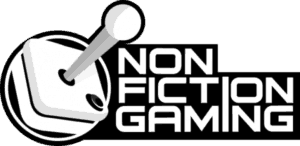
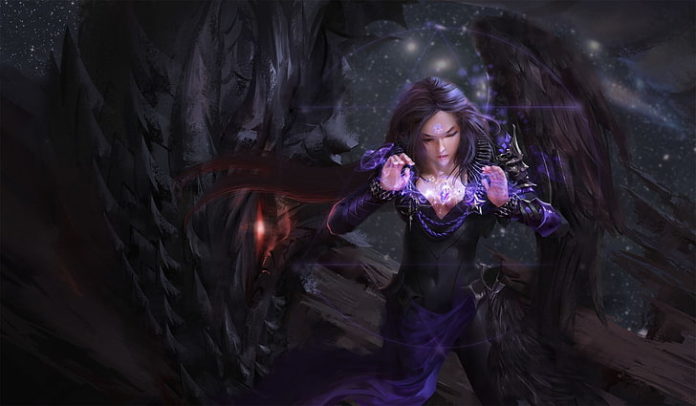
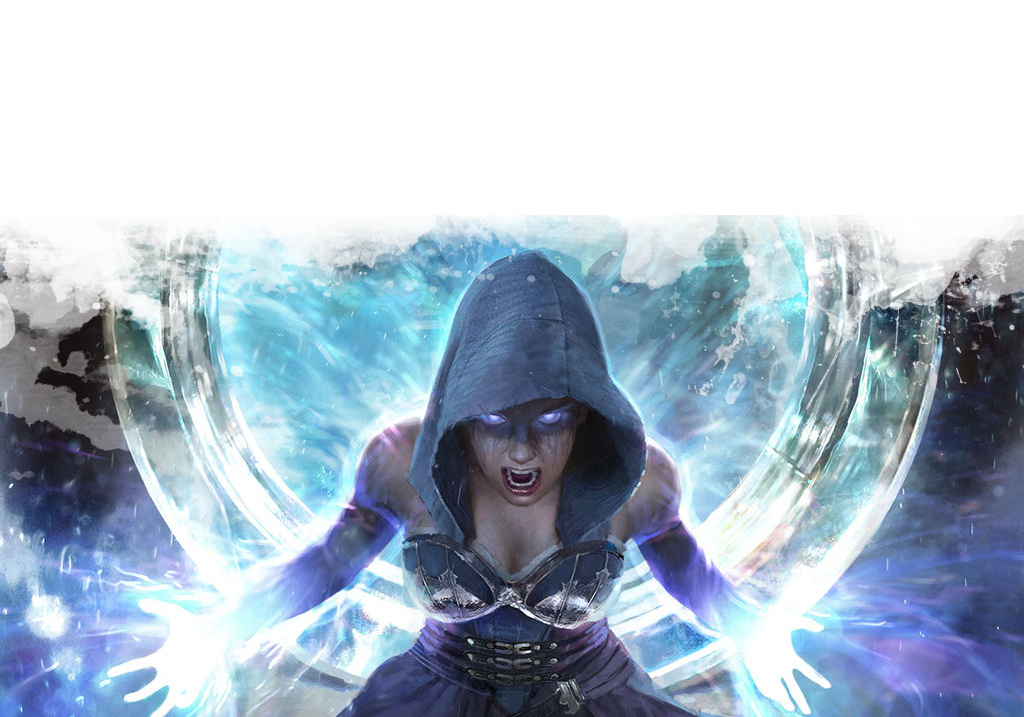
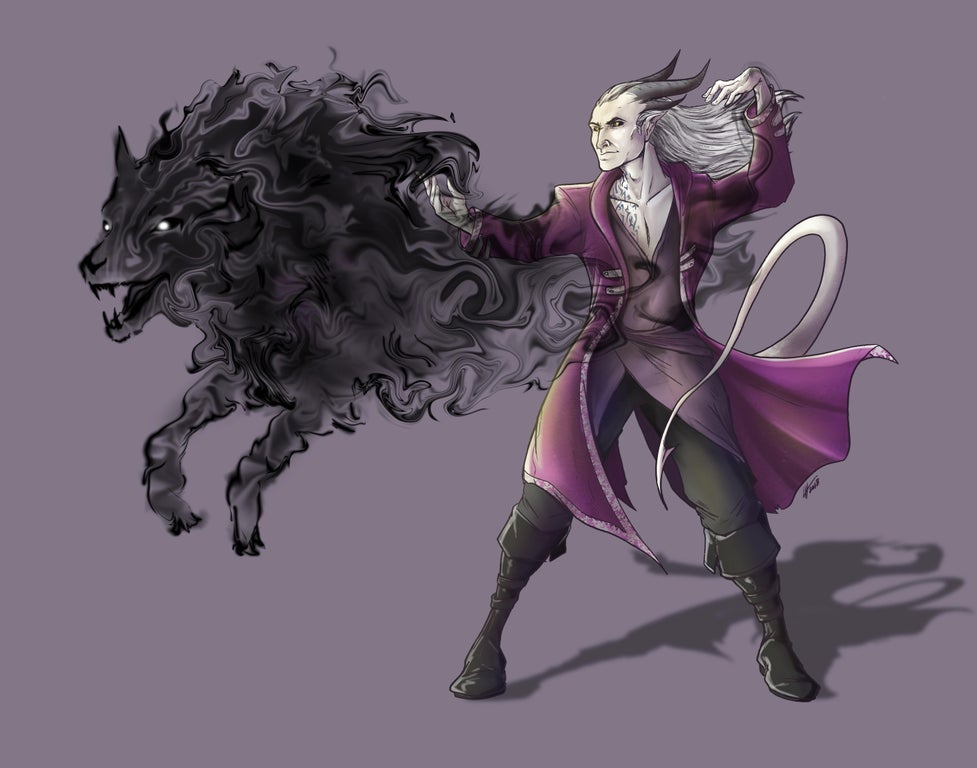
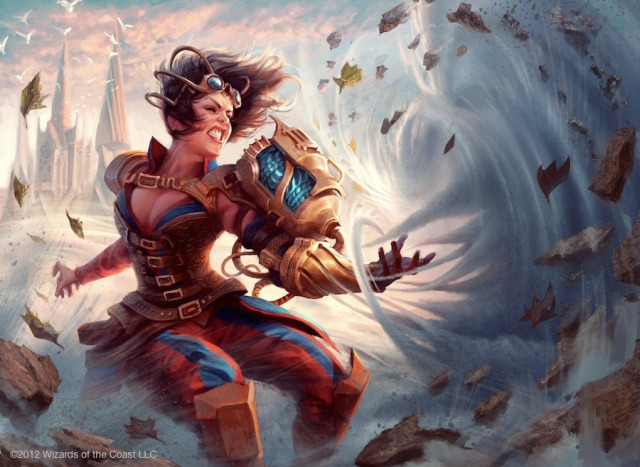
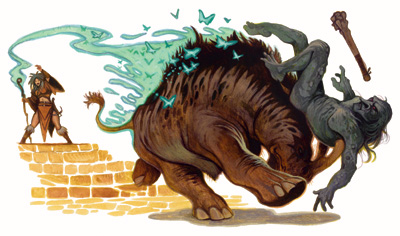
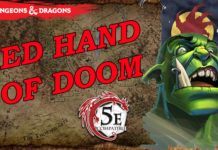
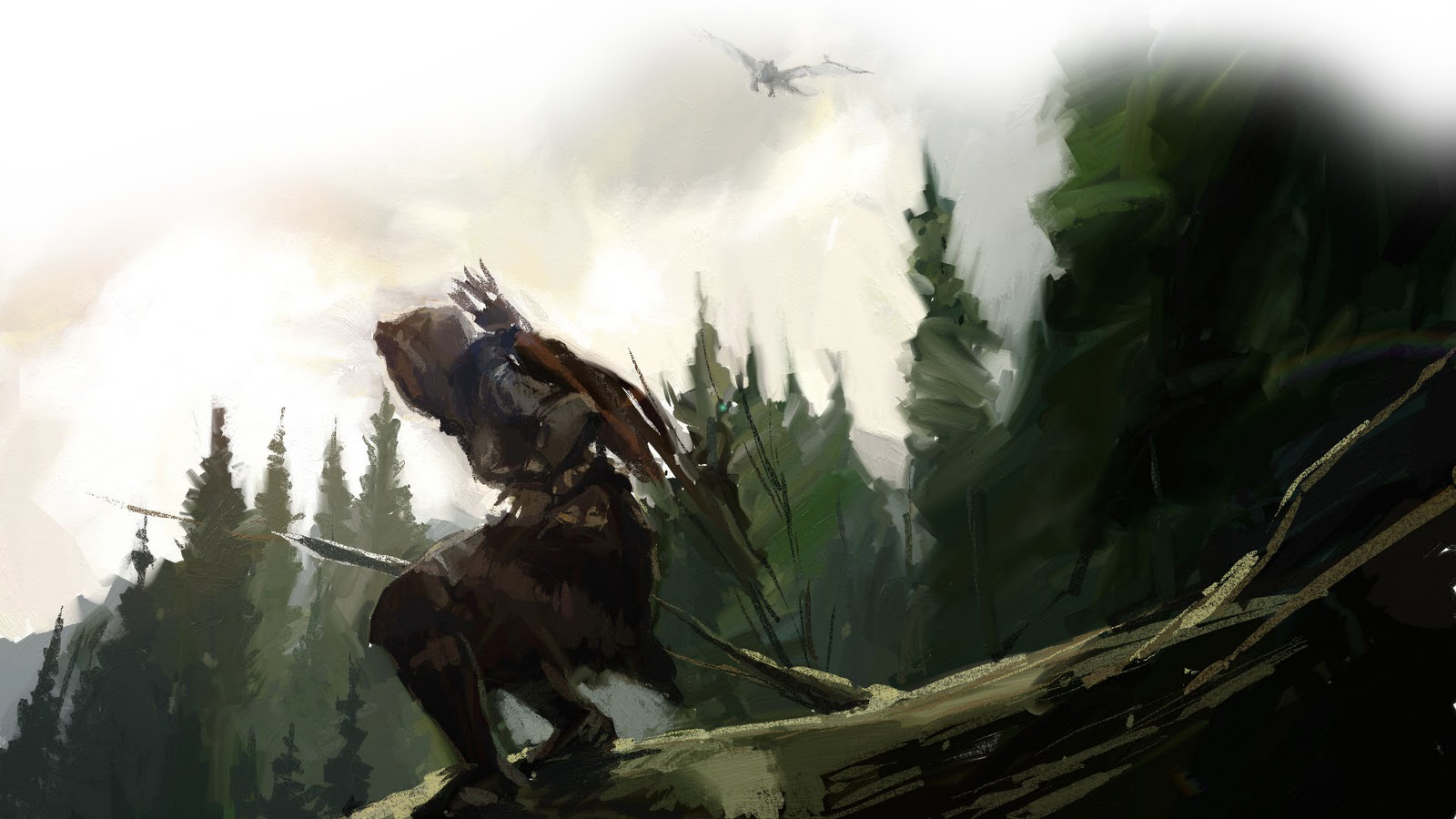

I feel like you misread the warcaster feat. It is one of the strongest feats for literally any spell caster.